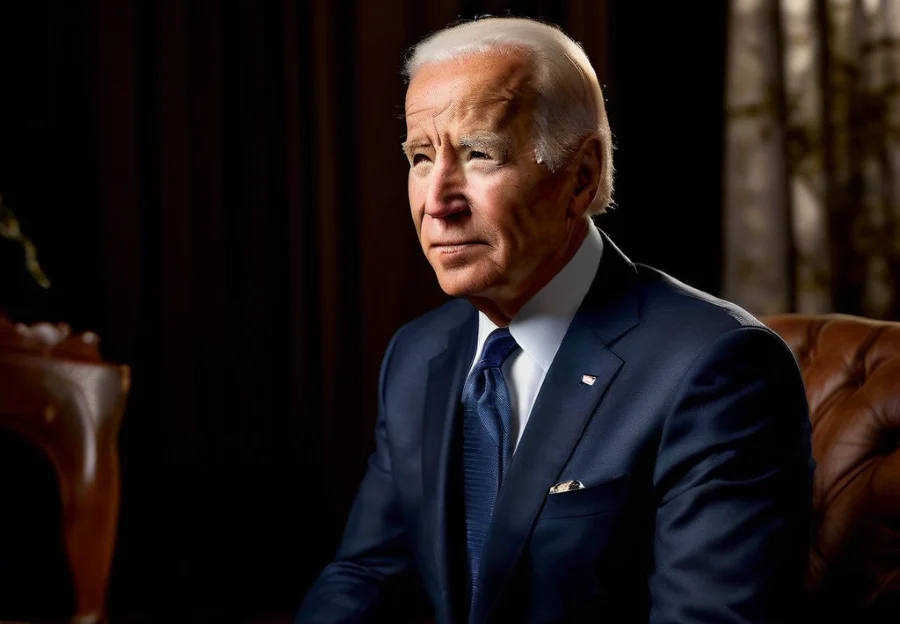President Joe Biden is facing mounting pressure from top Democrats to reconsider his bid for re-election in 2024, as concerns about his age, electability, and capacity to govern continue to grow. Recent reports suggest that even longtime allies are privately urging the 81-year-old incumbent to step aside, citing fears that he may struggle to defeat former President Donald Trump in the upcoming election.
Key Figures Expressing Concern
Several prominent Democratic leaders have reportedly voiced their apprehensions about Biden’s candidacy:
- Senate Majority Leader Chuck Schumer and House Minority Leader Hakeem Jeffries have allegedly advised Biden to withdraw from the race during private discussions.
- Former House Speaker Nancy Pelosi is said to have shared her concerns with Biden in a recent phone call, highlighting unfavorable polling data.
- California Representative Adam Schiff has become the most high-profile Democrat to publicly urge Biden to step aside.
These interventions from party stalwarts underscore the growing unease within Democratic ranks about Biden’s prospects in the 2024 election.
Factors Fueling Concerns
Several factors have contributed to the increasing pressure on Biden:
- Age and Public Perception: There are widespread concerns about Biden’s age and its impact on his ability to govern effectively. At 81, Biden would be the oldest president to serve a second term, and his age has become a focal point for many voters.
- Debate Performance: A lackluster showing in the first presidential debate has raised doubts about Biden’s fitness for another term. Critics argue that the debate highlighted ongoing struggles and reinforced perceptions of him as a candidate past his prime.
- Gaffes and Missteps: Recent verbal slip-ups, such as mistakenly referring to Vice President Kamala Harris as “V President Trump,” have added to worries about his mental acuity.
- Polling Data: Unfavorable poll numbers suggest Biden may face challenges in defeating Trump, potentially affecting down-ballot races. Nearly two-thirds of Democrats believe Biden should withdraw from the race.
Biden’s Response
Despite the growing chorus of voices calling for his withdrawal, President Biden remains steadfast in his commitment to the race. The White House has reiterated that Biden is the party’s nominee and is prepared to work with Democratic leaders to advance his agenda. Biden himself has stated that only “divine intervention” could persuade him to exit the contest.
Complications and Uncertainties
Adding to the complexity of the situation, Biden recently contracted COVID-19, leading to the cancellation of campaign events and his self-isolation in Delaware. While the White House assures that the President will continue his duties without interruption, this development has further fueled discussions about his candidacy.
Potential Replacement Scenarios
If Biden were to step down, the Democratic Party would face the challenge of selecting a new nominee. Several scenarios could unfold:
- Voluntary Withdrawal Before the Convention: If Biden decides to withdraw before the Democratic National Convention in August, the party could nominate another candidate to run in his place. This would involve delegates rallying behind an alternative, potentially avoiding a contested convention.
- Contested Convention: In the event of a contested convention, multiple candidates would vie for the nomination, engaging in a ‘mini-primary’ by visiting states, meeting delegations, and potentially participating in debates. This scenario could lead to a brokered convention, where delegates act as free agents and negotiate with party leadership to come up with a nominee.
- Post-Convention Withdrawal: If Biden steps down after the convention, the Democratic National Committee would convene to select a new nominee. This process would involve the 435 members of the DNC, who would need to rally behind a new candidate.
Potential Successors
Several names have been floated as potential replacements for Biden:
- Vice President Kamala Harris: As the current vice president, Harris is a natural successor. However, her low approval ratings and rocky start in the job may pose challenges.
- California Governor Gavin Newsom: Newsom has been a fierce surrogate for Biden and is often listed as a potential candidate for 2028. His national profile and political ambitions make him an appealing stand-in for Biden.
- Michigan Governor Gretchen Whitmer: Whitmer’s popularity in a critical swing state and her progressive policies make her a strong contender. She has campaigned for Biden in the past and has not been shy about her political aspirations.
- Transportation Secretary Pete Buttigieg: Buttigieg is known for his strong communication skills and has managed several public crises during his tenure. His presidential aspirations and previous campaign experience make him a viable candidate.
- Pennsylvania Governor Josh Shapiro: Shapiro’s high approval ratings and bipartisan appeal in a swing state make him a potential candidate. His recent political victories and infrastructure achievements have raised his national profile.
The Road Ahead
As pressure mounts and speculation intensifies, the Democratic Party finds itself at a crossroads. The coming days and weeks may prove crucial in determining whether Biden will heed the calls to step aside or continue his campaign for a second term in office. The party’s ability to navigate this complex and contentious situation will be critical in shaping the outcome of the 2024 election and ensuring a cohesive and effective strategy to counter potential challenges posed by the current political landscape.
